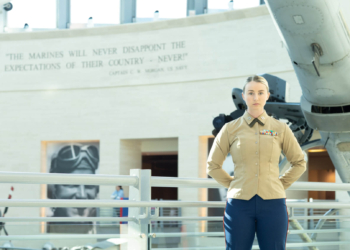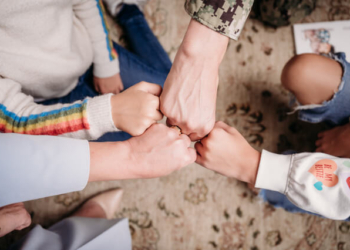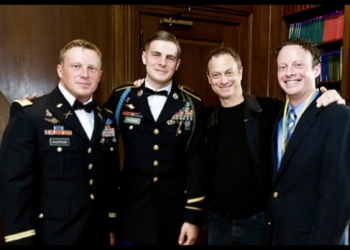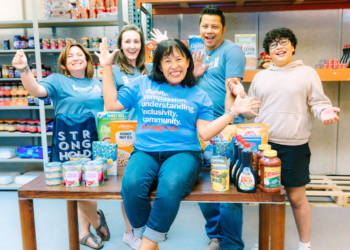It’s a phrase many military families are intimately familiar with: Anything that can go wrong will go wrong, or Murphy’s law. Usually invoked in regards to the calamities that occur when the service member is away. But just as the original source, Air Force Capt. Edward A. Murphy Jr., meant for it to motivate his team to prepare for everything, expecting the unexpected can help military families get through difficulties.
READ MORE: 6 deployment time management tips and tricks
“We dropped Brian off at the airport at 6 a.m. On the way home, the radiator exploded,” said Kathryn Brammer. It was the second of two back-to-back deployments for their family in 2018 and 2019 while stationed at Sheppard Air Force Base. Brammer can joke in hindsight that the period was such a blur that she forgot how old she was. Everything that could break did, including both major and minor appliances. “The coffee machine broke me,” Brammer recalls. It malfunctioned when Brammer and their two daughters, Samantha and Poppy, were all sick, so she couldn’t go out. “I was stuck at home with two sick kids and no coffee. I sat on the floor and cried.”
But when Brammer posted about the debacle on Facebook, a friend from church came to the rescue, delivering a cup of joe to her porch. She said that her church community was just one support system that made a big difference. Brammer commends the Air Force’s Key Spouse Program, in which a commander appoints someone to maintain contact with and provide information to families. She also makes a point to attend the Heart Link classes upon arrival at a new base (they’re also available for Space Force families). “You get coined, and get to put a face to all the agency heads.”

Every time Mollie Miller’s husband, John, who’s in the Army, has deployed, she has had at least one “learning experience,” as she’s now able to call them. During his first deployment, she got rear-ended near her office and didn’t know who to call. She returned from visiting family to find water all over their kitchen because the power had gone out and the refrigerator’s ice maker leaked when it came back on. The leak froze the freezer door shut. “Now I know to turn off the water,” Miller says.
After they had kids, a trip to the ER became part of the routine. The first was when Emma, at almost 6 months old, showed symptoms of pneumonia just six days after John left. A few years later, when he was away for extended training, Miller thought her son Jack had swallowed a pin. “That taught me to not leave things within my toddler’s reach!” X-rays didn’t find the pin because it had been under a rug, Miller said.
Miller, who has served as a Soldier and Family Readiness Group leader when John was a commander, also encourages military spouses to reach out to their community. “There are always people who can recommend a body shop,” she joked. On a more introspective note, she said, “Surround yourself with people who give you light. Their positivity positively impacts you.”
Mari Hagen’s husband, Thomas, a Naval aviator who retired as a captain in spring 2001, always left her with a guidebook. But a few incidents still required quick thinking. Like when the garage door opener broke one morning — a neighbor took Amelia and Emily to school, and a colleague gave her a ride to work.
Then there was the time their furnace broke on the Friday before New Year’s. “Of course, no one could fix it until Monday or Tuesday,” Hagen said. So she and the girls camped in the living room with a fireplace, borrowed space heaters and put blankets over the doors to keep in the heat.
Hagen said she thinks her career as a social worker — helping others find resources —made her better able to find them for herself. And she’s proud that Amelia and Emily, who are now in their 30s, saw her figure things out. “I have two very independent daughters,” she said.
Nowadays, sailors’ families can turn to Fleet and Family Readiness (Marines have the Unit, Personal, and Family Readiness program). All military families can use Military OneSource.
Read comments







































